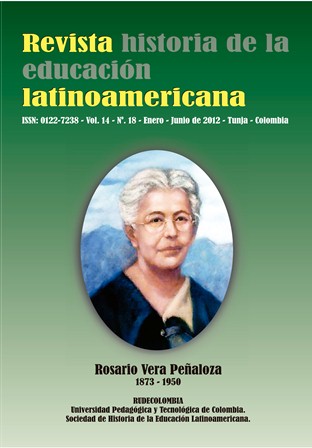PUBLIC EDUCATION AND INDEPENDENCE IN SPANISH AMERICA AND BRAZIL: LANCASTERIANAS EXPERIENCES IN THE NINETEENTH CENTURY

Abstract
Monitoring or Lancaster´s method and its wide spread are very attached to the need of educating through all social classes, illustration movement battle and becoming practical at least in the role of making public education systems of 19th century more practical. Elementary school education became an issue in the new nations after the independece process of Spanish and Portuguese colonies. Bell and Lancaster´s method was adopted in several countries such as: Cuba, Puerto Rico, Guatemala, México, Uruguay, Argentina, Chile, Perú, Bolivia, Brasil, Colombia, Venezuela, Ecuador, Paraguay. Joseph Lancaster came in different ocations to south America as invited by Simon Bolivar, Lancaster launched his method and created shools in these jurneys. He also promised travelling to the US and Canada.This paper analyses spread and implementation of mutual or monitorial teaching methods focusing in some countries. Studying Brasilean approach and experience, highlinting on contribution to elementary education development and spread. Adoption of Americas’ Method which was tuned with educational knowledge and models international processes in the first half of 19th Century.
Keywords
Journal of Latin American Education History, public education, lancasterian method, independence, the nineteenth century.
Supplementary File(s)
EDUCAÇÃO PÚBLICA E INDEPENDÊNCIAS NA AMÉRICA ESPANHOLA E BRASIL: EXPERIÊNCIAS LANCASTERIANAS NO SÉCULO XIX (Español)Downloads
Download data is not yet available.